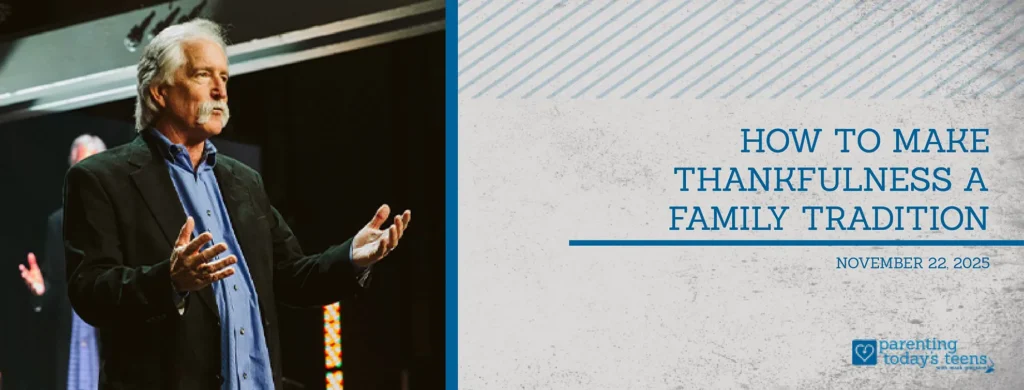Politics today feels louder, harsher, and more polarized than ever. Scroll through social media or turn on the news, and you’ll see people arguing, name-calling, and dividing over every issue imaginable. For parents, it’s easy to want to shut it all out. But avoiding political conversations at home doesn’t protect your teen — it just leaves more room for the culture to shape their worldview without your influence.
Whether your teen leans in a different direction than you or simply doesn’t know what they believe yet, this is your opportunity to guide them toward understanding, empathy, and wisdom. In this article, we’ll talk about how to discuss politics with your teen in a way that builds bridges instead of walls — and keeps your relationship stronger than any disagreement.
Why Politics Is So Tricky with Teens
Teens today are growing up in a world saturated with opinions. They’re constantly surrounded by sound bites, hashtags, and headlines that tell them what to think but rarely teach them how to think. While older generations were taught that “there are two sides to every story,” today’s teens scroll through dozens of perspectives on every issue, many of which are extreme, emotional, or misleading.
It’s no wonder so many young people struggle to tell the difference between truth and noise. The constant stream of strong opinions can make it seem like kindness and disagreement can’t coexist anymore. Many teens are starting to believe that if someone doesn’t share their views, they can’t possibly be friends or even family.
Parents tell me all the time how shocked they are to hear what their teens think about social or political issues. But I’m not surprised. Teens often attach themselves to a set of beliefs not because they’ve carefully reasoned through them, but because they want to belong. Maybe they’re defending someone they care about or aligning with what their friends believe. To them, it’s about connection.
That’s why political discussions can be such a minefield. When parents immediately argue, dismiss, or criticize their teen’s ideas, it doesn’t just feel like a disagreement, it can feel like rejection. If you’re not careful, you could unintentionally push your teen further toward the very ideologies you’re worried about.
How To Have Healthy Political Conversations:
If your teen’s political opinions make you raise your eyebrows (or your blood pressure!), take a breath. Your goal isn’t to win a debate — it’s to win your teen’s heart. Here are a few ways to do that:
1. Don’t panic when they disagree.
Teens are supposed to question what they’ve been taught. This is part of developing critical thinking. They’re moving from concrete ideas — what’s right or wrong, black or white — to abstract thinking that allows for nuance and complexity. They’re not rejecting you; they’re trying to figure out how your values fit into the world they’re growing up in.
2. Listen more than you talk.
God gave you two ears and one mouth for a reason! Instead of launching into a lecture, try listening with curiosity. Ask questions that invite your teen to think deeper:
• “That’s interesting—what led you to that conclusion?”
• “Where did you hear that idea?”
• “How do you think that would play out in real life?”
Listening communicates respect. It shows your teen that you value their thoughts, even when you don’t agree. That kind of respect builds trust — and trust opens the door for influence.
3. Watch your tone and your example.
If you speak with the same kind of harshness and sarcasm your teen hears online, they’ll tune you out. Avoid making fun of political leaders, parties, or movements in front of your kids. If you can’t model grace toward people you disagree with, how can you expect your teen to learn it?
You’re teaching them how to have conversations that are both truthful and kind. Even when you’re passionate, show what it looks like to disagree without dishonor.
4. Encourage independent thinking.
It’s tempting to jump in and correct every statement you think is misguided. But instead of trying to “set them straight,” give your teen space to reason things out. Ask guiding questions that help them think critically. The goal isn’t to control their conclusions — it’s to teach them how to evaluate ideas wisely. Invite dialogue instead of debate.
5. Keep the conversation going.
This shouldn’t be a one-time lecture. If you want your teen to keep opening up, make sure your reactions show that you’re safe to talk to. When your teen feels heard, they’ll come back for more conversations—not fewer.
6. Adjust your approach for sons and daughters.
Every teen processes differently. Many boys talk through ideas out loud. Let them wrestle verbally, even if they say something that sounds off-base — it’s part of how they think. Girls often process internally before they speak. You might have to draw them out gently with open-ended questions. Either way, patience and timing matter. Sometimes the best conversations happen over a meal, in the car, or late at night when they finally feel ready to talk.
Keep Perspective (And Your Cool)
Parents, you have the perfect opportunity to model wisdom in how you talk about controversial topics. James 1:19 says, “Everyone should be quick to listen, slow to speak and slow to become angry.” That’s great advice for political discussions, especially at home.
Don’t let anger or fear drive your responses. It’s okay for your teen to be “wrong” for a while. Remember, you probably don’t hold all the same political opinions you had when you were 16 either! Make sure your teen knows that your love isn’t dependent on their agreement.
Say it out loud: “There’s nothing you can do to make me love you more, and nothing you can do to make me love you less — even if we vote differently.”
When your teen knows that your love is unwavering, it creates the freedom to keep learning, talking, and growing together. And when tension rises, try adding a little humor. A shared laugh can defuse frustration and remind both of you that your relationship matters more than the issue at hand.
The Bottom Line
This culture is full of noise. Politicians argue endlessly, influencers shout opinions, and social media rewards outrage. But in your home, you can offer something different—wisdom, patience, and perspective grounded in truth.
Your teen doesn’t need a lecture about why your political stance is right. They need a safe place to process ideas and learn how to think biblically and compassionately about the world. They need to see what it looks like to hold convictions and show grace.
So, before you try to convince your teen of anything, listen first. Ask questions. Share your experiences humbly. And remember: your goal isn’t to raise a clone—it’s to raise a critical thinker who loves God and treats people with respect, no matter what they believe.
When you model that kind of wisdom, your teen will eventually see that truth and love can coexist—even in politics.






